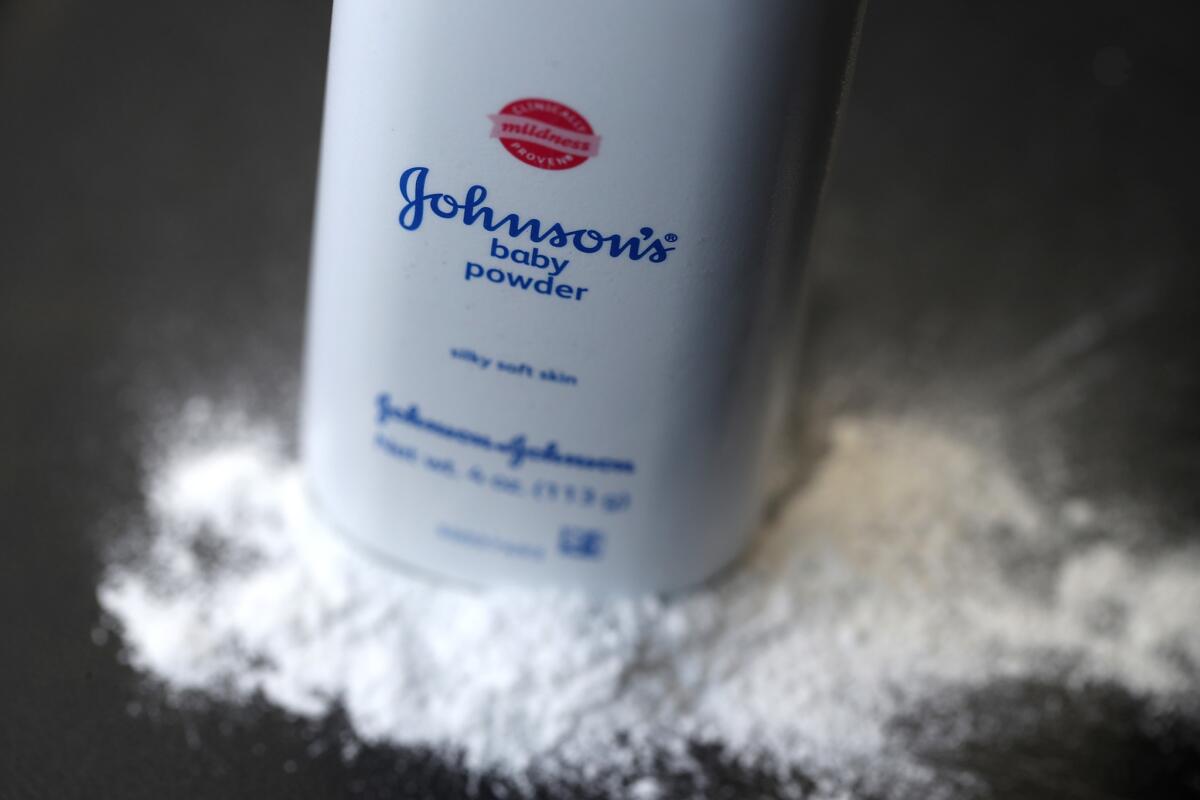J&J settles California baby powder-cancer case in the middle of jury trial

- Share via
Johnson & Johnson resolved a woman’s claims that asbestos-laced baby powder caused her cancer before a California jury got a chance to consider the allegations in one of dozens of cases to go to trial.
Jurors in state court in Oakland heard more than two weeks’ worth of testimony in Linda O’Hagan’s case before Superior Court Judge Stephen Kaus announced the deal Monday. The terms of the settlement were not made public.
It’s unusual for J&J to settle a case mid-trial in the sprawling nationwide litigation over its talc-based product.
J&J scored a big win last month in a talc case in St. Louis, where in 2018 it was hit with a $4.7-billion verdict on behalf of more than 20 women blaming their cancers on its baby powder. In the December case, jurors rejected a woman’s claim that her ovarian cancer was tied to use of J&J’s talc-based powder.
“In litigation of every nature there are one-off situations where settlement is a reasonable alternative,” J&J spokeswoman Kim Montagnino said in an emailed statement. “The decision to resolve any particular case in no way changes our overall position that our talc is safe, is asbestos-free and does not cause cancer.”
The company, which faces nearly 17,000 lawsuits accusing it of hiding that its baby powder was contaminated with asbestos, has been on a roll at trial, racking up eight defense verdicts last year while losing five.
O’Hagan was diagnosed with mesothelioma — a cancer linked to asbestos exposure — in August 2018 and underwent treatment for the disease, her lawyers told jurors in opening arguments. Doctors had told her she probably had less than two years to live, the lawyer added.
Another defendant in O’Hagan’s case, a unit of London-based Rio Tinto Minerals, also settled during the trial for an undisclosed sum. O’Hagan alleged that the company mined the talc used in J&J’s baby powder.
More to Read
Inside the business of entertainment
The Wide Shot brings you news, analysis and insights on everything from streaming wars to production — and what it all means for the future.
You may occasionally receive promotional content from the Los Angeles Times.










